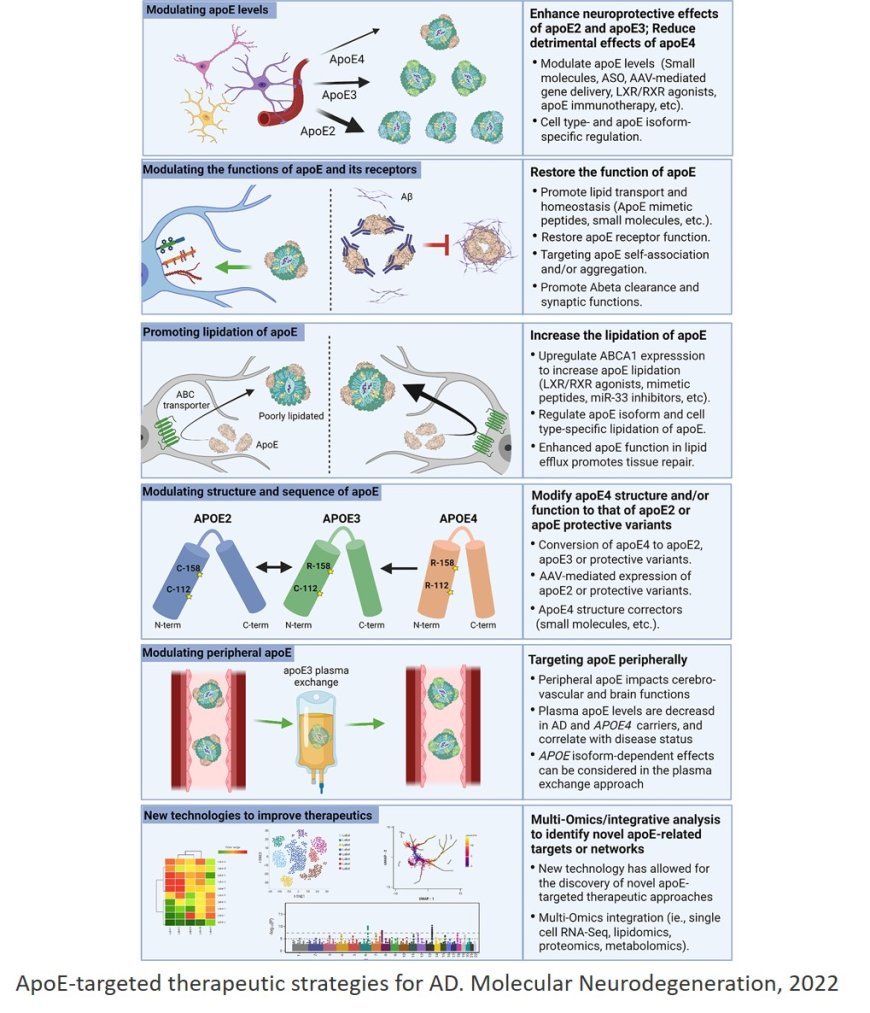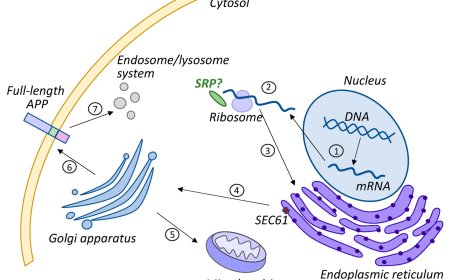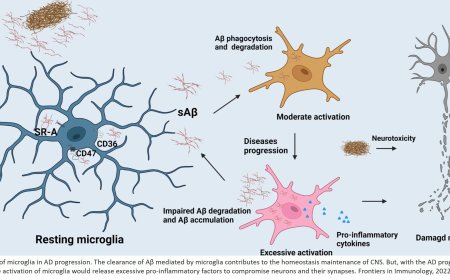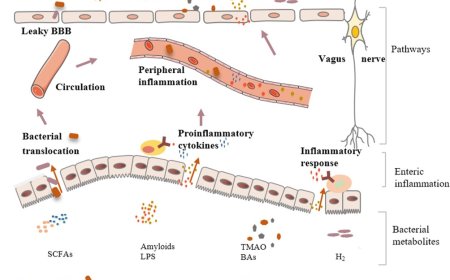APOE in Alzheimer’s

APOE (Apolipoprotein E) is a gene that plays a crucial role in lipid metabolism and is also the strongest genetic risk factor for late-onset Alzheimer's disease (AD). Here's an overview of APOE in Alzheimer's:
APOE Gene and Protein
1. Gene location: The APOE gene is located on chromosome 19q13.2.
2. Protein structure: The APOE protein consists of 299 amino acids and has three main isoforms: E2, E3, and E4.
APOE Isoforms and Alzheimer's Risk
1. APOE2: Associated with reduced Alzheimer's risk and slower cognitive decline.
2. APOE3: Neutral allele, neither increasing nor decreasing Alzheimer's risk.
3. APOE4: Significantly increases Alzheimer's risk, with a dose-dependent effect (one copy of E4 increases risk, while two copies greatly increase risk).
Mechanisms of APOE4-Mediated Alzheimer's Risk
1. Amyloid-β aggregation: APOE4 promotes amyloid-β aggregation and deposition.
2. Neuroinflammation: APOE4 enhances neuroinflammatory responses, contributing to neurodegeneration.
3. Lipid metabolism dysregulation: APOE4 disrupts lipid metabolism, leading to altered brain lipid profiles.
4. Tau pathology: APOE4 may also contribute to tau pathology, although the mechanisms are less clear.
Clinical Implications
1. Genetic testing: APOE genotyping can identify individuals at increased risk of Alzheimer's.
2. Risk assessment: APOE4 carriers should be monitored closely for cognitive decline and Alzheimer's symptoms.
3. Personalized medicine: APOE genotype may influence treatment decisions, such as the use of APOE-targeting therapies.
Therapeutic Targets
1. APOE4-lowering therapies: Strategies aimed at reducing APOE4 levels or inhibiting its toxic effects.
2. Amyloid-β-targeting therapies: Treatments targeting amyloid-β, such as antibodies or vaccines.
3. Neuroprotective therapies: Agents aimed at protecting neurons from APOE4-mediated damage.
Future Directions
1. APOE4 structure and function: Further research on APOE4's molecular mechanisms to inform therapeutic development.
2. APOE genotype and phenotype: Investigations into the relationship between APOE genotype and Alzheimer's phenotype.
3. Personalized treatment strategies: Development of APOE genotype-based treatment approaches for Alzheimer's disease.
https://molecularneurodegeneration.biomedcentral.com/articles/10.1186/s13024-022-00574-4
https://sciencemission.com/ApoE-in-Alzheimer%E2%80%99s-disease













